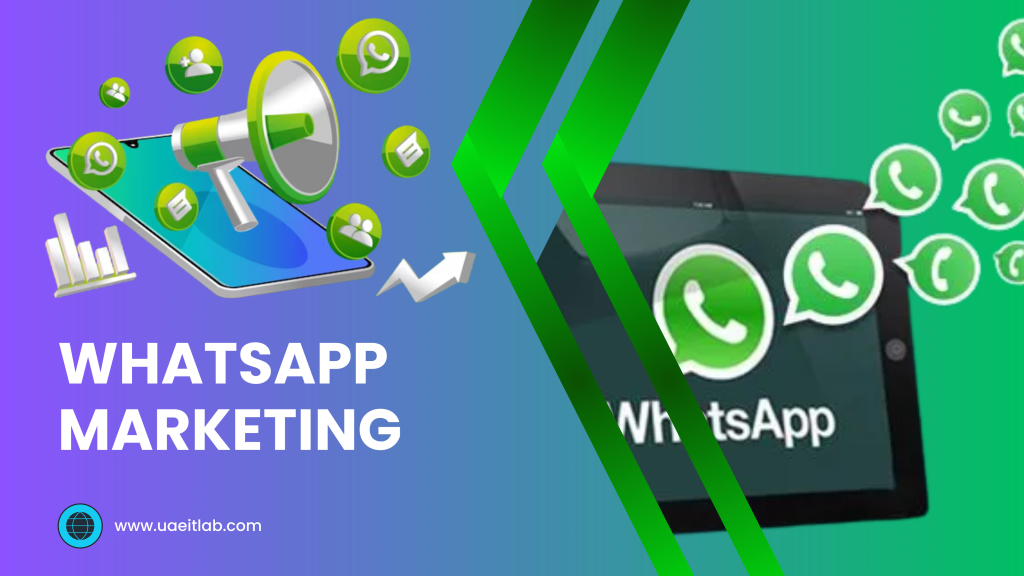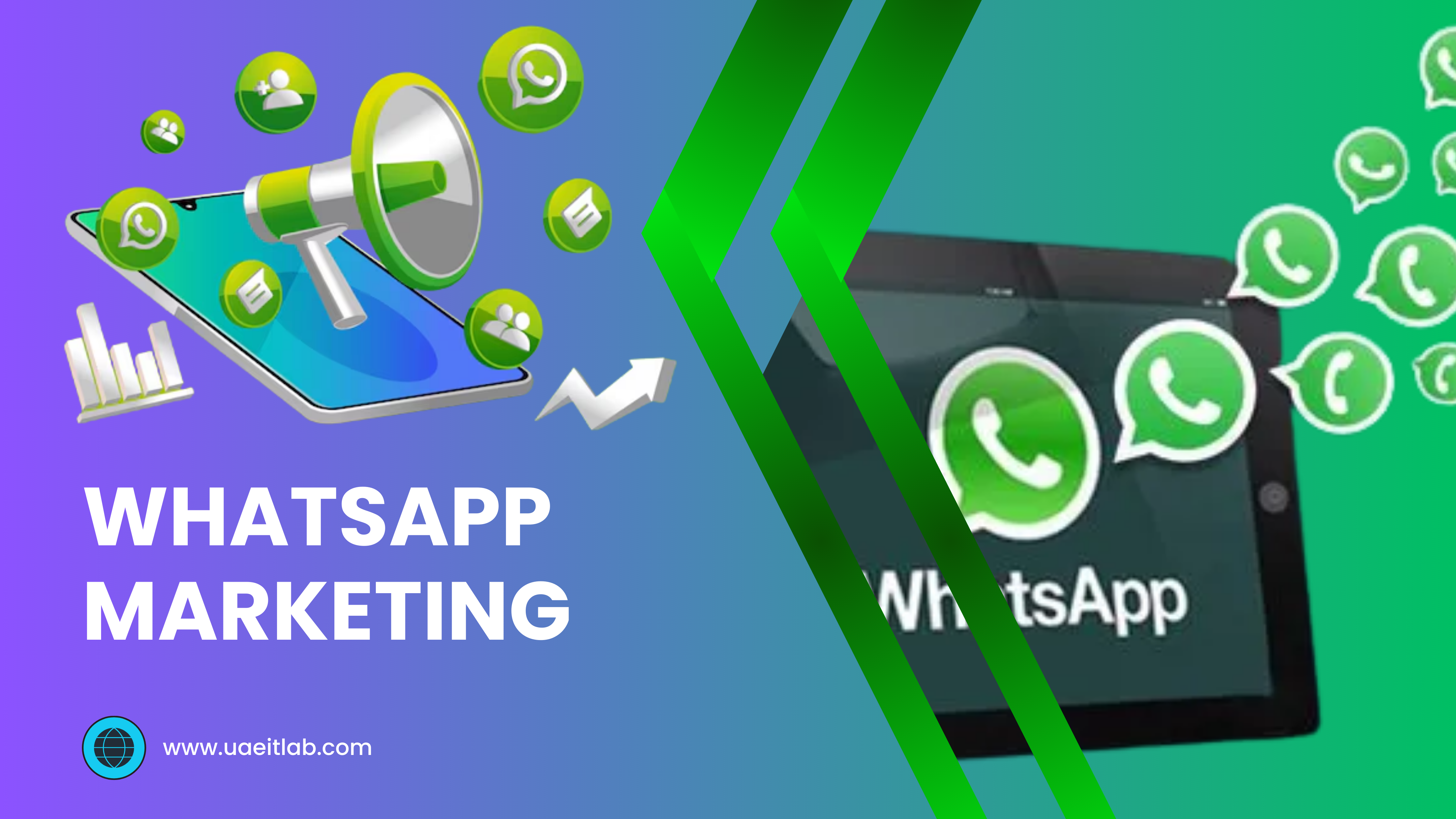Unlocking the Power of WhatsApp Marketing: A Guide for Businesses

In today’s fast-paced digital world, businesses are constantly searching for innovative ways to reach their target audience effectively. WhatsApp, with its more than 2 billion active users, has emerged as a powerful platform for businesses to connect with customers in a personal and direct way. WhatsApp marketing allows businesses to foster stronger relationships, increase engagement, and drive sales.
In this blog post, we’ll explore the potential of WhatsApp marketing, how it works, and best practices for leveraging this messaging platform to grow your business.
1. What is WhatsApp Marketing?
WhatsApp marketing involves using the WhatsApp messaging platform to promote products or services, engage with customers, and provide customer support. This form of marketing allows businesses to reach their audience directly via one-on-one or group chats, broadcast messages, and more. The personal nature of WhatsApp makes it an excellent tool for building relationships with customers, enhancing user experience, and driving conversions.
Why Choose WhatsApp for Marketing?
- Massive Reach: WhatsApp boasts over 2 billion active users worldwide, with a large percentage of users accessing the app multiple times a day. This presents a massive opportunity to engage with potential customers.
- Personalized Communication: WhatsApp allows businesses to send personalized messages to individuals, creating a sense of personal connection that is often lost in traditional marketing channels.
- High Open Rates: WhatsApp messages have much higher open rates compared to email, often upwards of 98%. This means that your messages are more likely to be seen and read.
- Instant Communication: WhatsApp is a real-time messaging platform, making it ideal for businesses looking to provide fast customer service or send time-sensitive offers.
2. Ways to Leverage WhatsApp for Marketing
There are several ways businesses can use WhatsApp to reach and engage with their customers. Let’s break down the most effective strategies for WhatsApp marketing:
1. WhatsApp Broadcast Messages
Broadcast messages allow businesses to send messages to multiple contacts at once without them knowing who else received the message. This feature is great for sharing promotions, offers, or important announcements with a large group of customers.
- Tip: Segment your audience into different groups based on interests or purchase behavior to send relevant content. For example, send product updates to customers who have previously bought from your online store.
2. WhatsApp Groups
WhatsApp groups are a great way to create communities around your business. You can invite customers to join a group where they can engage with your brand, ask questions, and receive exclusive offers. Group chats foster a sense of community, making customers feel more connected to your brand.
- Tip: Create different groups based on customer interests or product categories. For example, create a group for new arrivals or a VIP group for loyal customers to receive special perks.
3. Customer Support and Engagement
WhatsApp provides an excellent platform for real-time customer support. By offering customer service through WhatsApp, businesses can provide quick answers to customer queries, resolve issues faster, and build stronger customer relationships.
- Tip: Set up WhatsApp Business Profile with essential details like your business name, logo, website, and working hours to make it easier for customers to reach you.
4. Automated Messages with WhatsApp Business API
WhatsApp Business API is designed for medium and large businesses that need to manage customer communications at scale. With the API, businesses can automate messages, create chatbots, and integrate WhatsApp with other CRM systems.
- Tip: Use automation to send welcome messages, order confirmations, shipping updates, and reminders. Chatbots can handle FAQs, provide instant responses, and streamline customer interactions.
5. WhatsApp Status Updates
WhatsApp status allows businesses to share images, videos, and text updates with their audience for 24 hours. This feature is often underutilized but can be a great way to share time-sensitive offers, product launches, and promotions.
- Tip: Post exclusive behind-the-scenes content or flash sales on your WhatsApp status to encourage customers to check your updates regularly.
6. WhatsApp for E-commerce
WhatsApp can be integrated with e-commerce platforms to drive sales directly from the app. Businesses can share product catalogs, answer queries about products, and even complete sales transactions through WhatsApp.
- Tip: Share your product catalog via WhatsApp, allowing customers to browse and inquire about products directly. This personal approach can increase conversions and boost customer satisfaction.
3. Best Practices for WhatsApp Marketing
To make the most out of WhatsApp marketing, here are some best practices to follow:
1. Get Permission
It’s essential to get explicit consent from customers before sending them promotional messages. This ensures that your audience is receptive to your communication and prevents your messages from being marked as spam.
- Tip: Use opt-in forms on your website or social media to collect phone numbers. You can also encourage customers to reach out to you on WhatsApp to start a conversation.
2. Keep Your Messages Short and Engaging
Since WhatsApp is a messaging app, users expect quick, easy-to-digest messages. Avoid sending long paragraphs and focus on clear, concise communication that adds value to the customer.
- Tip: Use images, videos, or GIFs to make your messages more engaging and visually appealing. This can help capture attention and improve engagement.
3. Personalize Your Messages
WhatsApp is a personal messaging app, so it’s important to tailor your messages to each customer. Personalization can make your communication feel more genuine and foster a stronger connection with your audience.
- Tip: Use the customer’s name in your messages, and send personalized offers based on their previous interactions with your business.
4. Respond Promptly
Customers expect quick responses on WhatsApp, and slow reply times can hurt your brand’s reputation. Ensure that you are available to respond promptly to inquiries, or set up automated responses during non-working hours to manage expectations.
- Tip: Use WhatsApp Business’ automated message feature to set away messages and let customers know when they can expect a response.
5. Respect Customer Privacy
Respect the privacy of your customers by not bombarding them with too many messages. You can also give them the option to unsubscribe or opt-out if they no longer wish to receive marketing messages.
- Tip: Always include an easy way for customers to opt-out of receiving messages (such as replying with “STOP”). This helps build trust and ensures compliance with privacy regulations.
4. Measuring Success in WhatsApp Marketing
As with any marketing strategy, it’s important to track the success of your WhatsApp campaigns. Use WhatsApp Business tools and integrations to monitor metrics such as message open rates, response rates, and conversion rates. This data can help you adjust your strategy and improve your results over time.
5. Conclusion: The Future of WhatsApp Marketing
WhatsApp marketing offers a unique opportunity for businesses to connect with their customers in a direct, personal, and engaging way. With its massive user base, high engagement rates, and the ability to provide real-time customer support, WhatsApp is quickly becoming a vital tool for businesses looking to build stronger customer relationships and boost sales.
By implementing the right strategies, such as using WhatsApp Broadcasts, leveraging WhatsApp Groups, offering instant customer support, and personalizing communication, businesses can unlock the full potential of WhatsApp marketing and drive long-term success.

